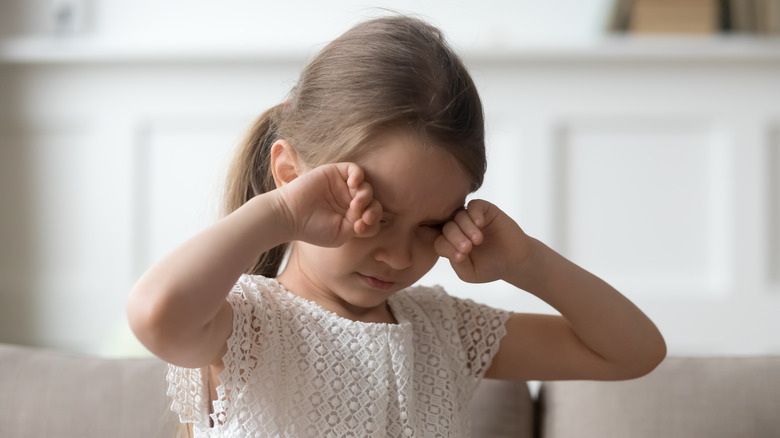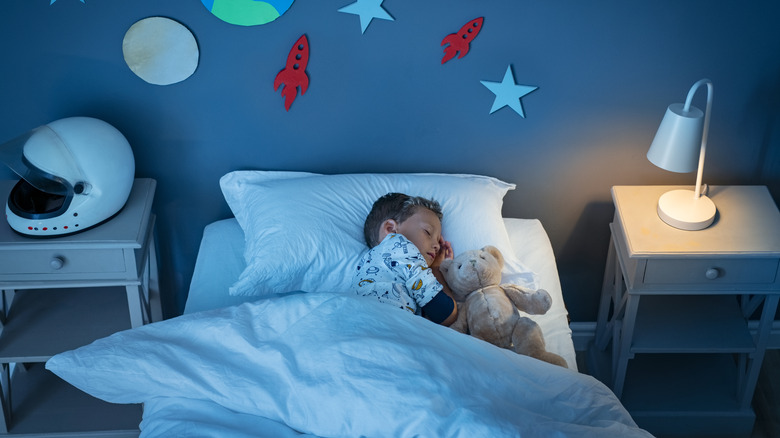Why Kids Who Have Trouble Sleeping Might Not Grow Out Of It
If your child has trouble sleeping, you may want to avoid thinking it's just a phase. According to a new study published in the journal Pediatrics, children who have insomnia, which is frequent trouble falling or staying asleep, are likely to also suffer from the sleep disorder as adults. The study found that almost half of children who have insomnia continue to struggle with the disorder in their 20s and 30s.
According to US News, childhood insomnia is relatively common. "About 20% to 25% of school-aged children have insomnia symptoms, understood as difficulties falling or staying asleep," said study lead author Julio Fernandez-Mendoza, who is an associate professor of psychiatry and behavioral health with the Sleep Research & Treatment Center at Penn State University College of Medicine. A stressful home environment, poverty, and electronic use in bed can all contribute to childhood insomnia. If your child is suffering from insomnia, speak to your pediatrician about it. They can help you create a healthier sleep environment for your little one and rule out or identify any health conditions that may be contributing to the disorder.
The importance of a good night's sleep
There is no way to overestimate the importance of a good night's sleep. This period is when our bodies and brains recharge after working hard all day. "Many things that we take for granted are affected by sleep," Raymonde Jean, MD, director of sleep medicine and associate director of critical care at St. Luke's-Roosevelt Hospital Center in New York City, told Health. "If you sleep better, you can certainly live better. It's pretty clear."
Good sleep is arguably even more important for children. According to Johns Hopkins Medicine, children who get enough sleep each night have better attention spans, improved behavior, better learning skills, a sharper memory, and good physical and mental health. On the other side, kids who don't get enough sleep are at risk of developing high blood pressure, obesity, and depression. It is recommended that children ages 3 to 5 years old get 10 to 13 hours of sleep each night, children who are 6 to 12 years old get 9 to 12 hours of sleep each night, and teenagers get 8 to 10 hours of sleep each night.


